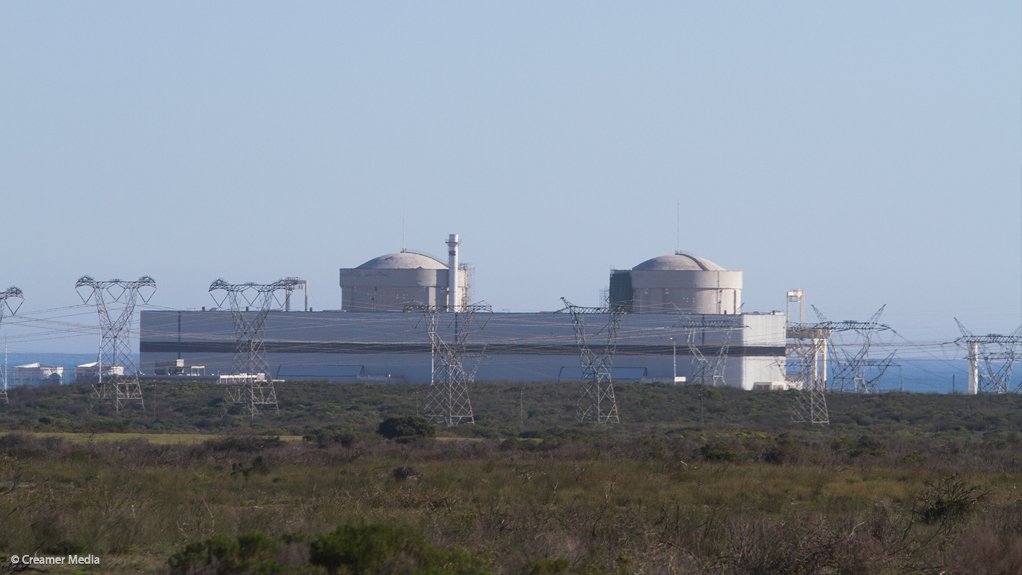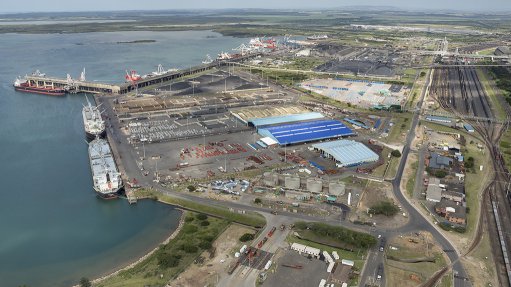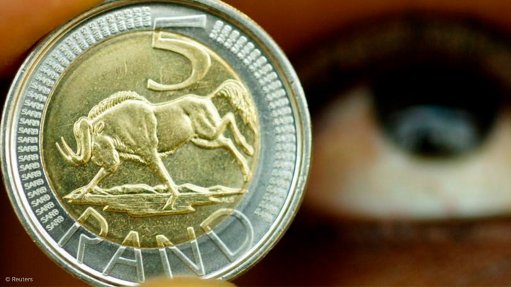Developing countries have opportunity to call for greater access to nuclear energy, technology
States that do not have nuclear weapons, which include most developing countries, have an opportunity to demand greater access to nuclear sciences and technologies for peaceful purposes, including for energy, industry and medicine, at the tenth review conference of the Treaty on the Non-Proliferation of Nuclear Weapons (NPT), scheduled for August, Ambassador of Norway to Southern Africa Stian Nordengen Christensen has pointed out.
Non-nuclear weapon armed States, and African States in particular, aim to focus on peaceful uses of nuclear energy at the upcoming review conference and they have the full support of Norway, he said during a discussion hosted by the South African Institute of International Affairs on May 13.
"The voices of African States are important not only for Africa's peaceful use of nuclear sciences and technologies, but also for the international community that seeks to strengthen the NPT.
“For example, the removal of highly enriched uranium (HEU) from facilities in Nigeria inspired Norway to eliminate its own small stocks of HEU over the next few years," he said.
The uses of nuclear science and technology include nuclear-derived uses and applications such as radiotherapy and the use of radioactive isotopes for diagnosis in healthcare, non-destructive testing and industrial uses, water resources monitoring, real-time polymerase chain reaction uses and to track microplastics in the environment, besides others, African Commission on Nuclear Energy (Afcone) executive secretary Messaoud Baaliouamer highlighted.
"The goal of Afcone is to promote the development of institutional capacity, monitoring and safeguards and research and development to support the peaceful use of nuclear science and technology on the continent," he said.
More than 65% of African countries do not have radiotherapy centres, African Regional Cooperative Agreement for Research, Development and Training related to Nuclear Science and Technology (Afra) chair Ali Ada noted during the 'Peaceful application of nuclear science and technology in the development agenda' discussion.
The International Atomic Energy Agency (IAEA) launched the Rays of Hope initiative in February, which represents a step-change in its assistance to member States fighting against cancer, said IAEA director-general Rafael Grossi.
The initiative enjoys strong support from African leaders, and the IAEA has partnered with African member States to increase training and access to lifesaving technologies, such as radiotherapy, he said.
"The NPT sets out States' inalienable right to the development of nuclear science and technology for peaceful purposes and the obligation by signatories to share nuclear technology and information," University of South Africa Department of Political Sciences Professor Jo-Ansie Van Wyk noted.
"The NPT is recognised as the most widely subscribed multilateral nuclear disarmament treaty, although it discriminates between nuclear weapon armed and non-armed States. The Grand Bargain compromise of the NPT many States bought into, created a false sense of security, in view of the war in Ukraine and threats of the use of nuclear weapons as a weapon of last resort.
"There is a feeling that non-nuclear weapon armed States have not fully benefitted from the obligation to share nuclear technology and knowledge," she said.
It is important to reflect that African States, which constitute the largest nuclear weapons-free area, have conscientiously implemented their obligations in terms of nuclear non-proliferation, safety and security for peaceful use, but nuclear weapons armed States have not fulfilled their obligations under the treaty to destroy their weapons and provide access to nuclear science and technology, highlighted South Africa Department of International Relations and Cooperation disarmament and non-proliferation director Marthinus van Schalkwyk.
"In the run-up to the NPT review conference, we have seen lots of focus on the peaceful use of nuclear science and technology, with the US, the UK, Japan and Canada aiming to create a sustained dialogue for peaceful-use initiatives.
"It is sad that it is necessary to establish such initiatives following decades of not implementing sustained dialogue and programmes to enable developing countries to access nuclear science and technology for their own socioeconomic development," he noted.
NUCLEAR ENERGY
About 30 countries in Africa are considering building nuclear energy facilities.
Small modular reactors (SMR) present the continent with more options to harness safe, reliable nuclear energy to fuel their economies and end energy poverty without emissions that cause climate change and contribute to air pollution, said Grossi.
"The peaceful application of nuclear science and technology is of great relevance to Africa's development agenda," added Christensen.
The advent of SMR may facilitate the spread of nuclear power in Africa beyond solely South Africa and this is one of the reasons the African Union views uranium resources as commodities to drive economic development and establish competitive African market players in the uranium nuclear energy value chain, said Kazakhstan International Centre for Science and Technology senior programme manager Kamen Velichkov.
"This [development] is particularly valid for the [Southern African Development Community (SADC)] region, with about half of SADC member States having uranium deposits and intending to make use of them for export revenue," he highlighted.
The European Union (EU) International Science and Technology Centre (ISTC) Support to Southern African States in Nuclear Safety and Safeguards programme has provided external assistance and support.
It has remained consistent and aligned with the objective that African partners choose to pursue the goals they deem necessary to fulfil their development goals, including several United Nations Sustainable Development Goals, said Velichkov.
"The ISTC has called for nothing more or less than support for African partners to progress along the [development] road they have embarked on," he added.
The continent's nuclear safety and security obligations, regulations and monitoring capabilities are a prerequesite for nuclear energy, sustainability and peaceful applications of nuclear science and technology.
"Global energy demand is rising and nuclear energy can help to ensure access to affordable, reliable and low-carbon energy," said Velichkov.
He advocated for the creation of a regional nuclear safety and security structure during the discussion.
"Ten SADC countries have declared an interest in nuclear science and technology and are establishing nuclear regulatory frameworks. A further five smaller and island States are mostly interested in limited, specialised applications," he noted.
"The transfer of nuclear science and technology to member States mainly takes place through the IAEA. It is imperative that access to such research and knowledge is sustained, as it is often the only means through which African countries can access nuclear science and technology for socioeconomic development," noted Van Schalkwyk.
Afcone is making every effort, in addition to those by the IAEA and Afra, to develop in-Africa national and regional level capacity in terms of nuclear safety and security.
It aims to promote, as much as possible, the safe introduction of nuclear power in Africa in accordance with international nuclear safety standards, said Baaliouamer.
South African State-owned Eskom’s Koeberg nuclear power station, in the Western Cape, has been safely generating electricity for decades and the utility is working to extend its life, which is due to come to an end in 2024/25, by 20 years.
South Africa also boasts nuclear science and technology capacity through the South African Nuclear Energy Corporation (Necsa), which owns and operates the Safari-1 nuclear research reactor. Necsa subsidiary NTP Radioisotopes also produces radiation-based products for the healthcare industry in South Africa, as well as for export.
Article Enquiry
Email Article
Save Article
Feedback
To advertise email advertising@creamermedia.co.za or click here
Press Office
Announcements
What's On
Subscribe to improve your user experience...
Option 1 (equivalent of R125 a month):
Receive a weekly copy of Creamer Media's Engineering News & Mining Weekly magazine
(print copy for those in South Africa and e-magazine for those outside of South Africa)
Receive daily email newsletters
Access to full search results
Access archive of magazine back copies
Access to Projects in Progress
Access to ONE Research Report of your choice in PDF format
Option 2 (equivalent of R375 a month):
All benefits from Option 1
PLUS
Access to Creamer Media's Research Channel Africa for ALL Research Reports, in PDF format, on various industrial and mining sectors
including Electricity; Water; Energy Transition; Hydrogen; Roads, Rail and Ports; Coal; Gold; Platinum; Battery Metals; etc.
Already a subscriber?
Forgotten your password?
Receive weekly copy of Creamer Media's Engineering News & Mining Weekly magazine (print copy for those in South Africa and e-magazine for those outside of South Africa)
➕
Recieve daily email newsletters
➕
Access to full search results
➕
Access archive of magazine back copies
➕
Access to Projects in Progress
➕
Access to ONE Research Report of your choice in PDF format
RESEARCH CHANNEL AFRICA
R4500 (equivalent of R375 a month)
SUBSCRIBEAll benefits from Option 1
➕
Access to Creamer Media's Research Channel Africa for ALL Research Reports on various industrial and mining sectors, in PDF format, including on:
Electricity
➕
Water
➕
Energy Transition
➕
Hydrogen
➕
Roads, Rail and Ports
➕
Coal
➕
Gold
➕
Platinum
➕
Battery Metals
➕
etc.
Receive all benefits from Option 1 or Option 2 delivered to numerous people at your company
➕
Multiple User names and Passwords for simultaneous log-ins
➕
Intranet integration access to all in your organisation





















